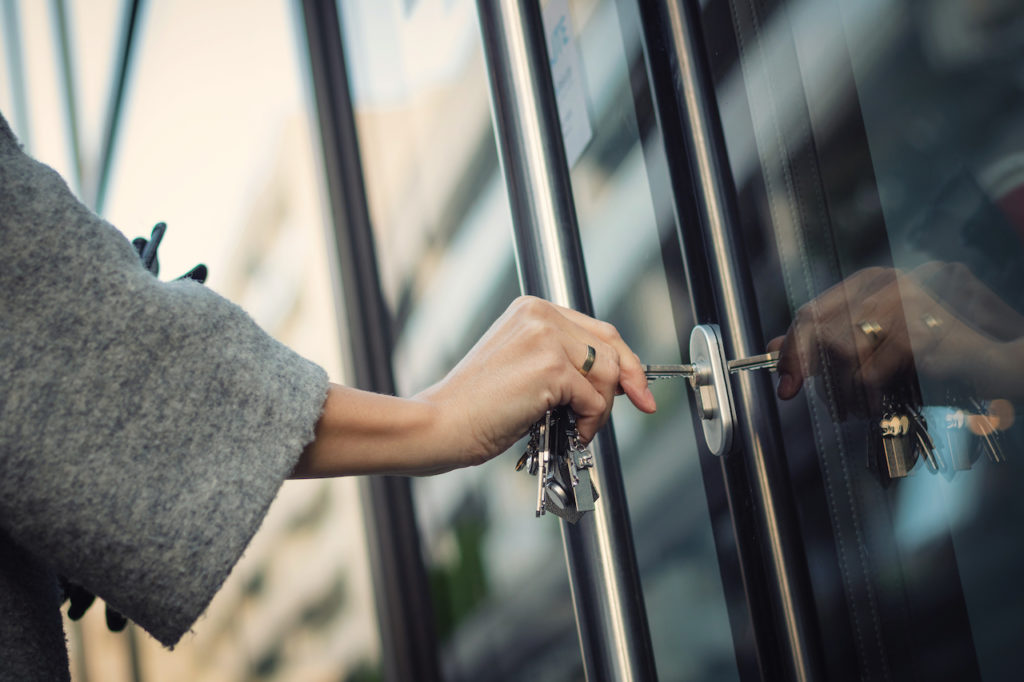
As a tenant, you are entitled to certain renter rights. These can range from the right to privacy to the right to a clean, habitable home. In addition, there are things your landlord is not legally allowed to ask you as a renter or rental applicant. Read on to see the list of topics your landlord can’t question you about, and a few they can.
What can’t your landlord legally ask you?
- Landlords cannot ask questions related to a tenant’s nationality or race, religion, marital status, children, sexual orientation, disability, pregnancy, or source of income.
- These questions are prohibited by the Fair Housing Act, which prohibits discrimination based on specific characteristics such as race, religion, and family status.
- If a landlord asks one of these questions, it’s crucial to respond calmly and assertively and remind them that the question is prohibited by law.
- If a landlord continues to ask prohibited questions, it may be necessary to contact a tenant rights organization or seek legal counsel.
1. Nationality
“Where were you born and raised?”
Asking where you were born or from which country you came is illegal. Your landlord should never ask you about your nationality or anything related to your ethnic background. In addition, what a landlord cannot do is discriminate against you based on these things, so denying you an apartment because of your country of origin is illegal.
2. Sexual orientation and gender identity
“Who do you date?”

Unfortunately, it depends on the state in which you’re renting for this one to be completely true. In states like California and Massachusetts, discriminating against an applicant based on their sexual orientation and gender identity is prohibited. In these states (and in more than 20 others), a landlord cannot ask you if you are straight, gay, trans, etc., or deny you an apartment or home because of your gender identity orientation. If you’re in a state that extends protections to the LGBTQ+ community, and a potential landlord asks you for this information, politely refer to your renter rights and local laws.
If you’ve already signed a lease, what a landlord cannot do is evict you because of your sexual orientation or gender identity. Unless your lease explicitly states rules around this topic, you should be in the clear from eviction based on it.
3. Religious affiliation
“Which church do you go to?”
Similar to your sexual orientation, what a landlord cannot do is ask you what your religious affiliation is. They also can’t ask if you are religious in general. Thanks to the Fair Housing Act, discriminating against a rental applicant based on their religion is prohibited by law, and your landlord can’t use your religious affiliation to deny you housing.
4. Public assistance status
“Are you on food stamps?”
Although landlords have the right to know where you’re employed and how much money you make, what a landlord cannot do is ask where all of your money comes from. If you’re employed, but also on food stamps or other public assistance, you have the right to keep that information to yourself. Put simply: your landlord cannot deny you housing or treat you differently from other tenants if you’re using government services.
If you are struggling financially, there are also apartments with no credit checks, we caution against those for a few reasons. Instead, we recommend taking these steps to rent an apartment with low credit if you’re concerned about your income and/or credit score.
5. Familial status
“Do you expect to have kids soon?”

Although landlords have the right to ask how many occupants will be living in the home or apartment, they’re not allowed to discriminate based on a few things related to your familial status. They are not allowed to ask you if you are pregnant or expecting to get pregnant, nor are they allowed to ask you if you plan on having kids in the future. Your landlord (or any potential landlord) cannot discriminate or turn an applicant away based on familial status.
In the same vein, landlords are prohibited from turning applicants away based on whether they’re married, single, divorced, or separated. In other words, what a landlord cannot do is ask you if you’re married and then choose someone else if they don’t like your answer.
6. Age
“How old are you?”
Thanks to the Fair Housing Act, a landlord cannot ask you how old you are. Maybe they only want to rent their unit to a specific age bracket or don’t like renting to young college students; whatever their reasoning for wanting a person of a certain age, it’s illegal to deny an applicant housing based on their age.
7. Entering without proper notice
“May I come over in an hour to check out the apartment?”

Legally, landlords must give advance notice to enter your apartment. If they enter without proper notice (which is usually 24-hours’ minimum), they are violating your renter’s rights. Check your lease to see what “proper notice” means in your situation, and make sure they’re respecting your right to privacy and playing by the rules.
8. Repairs
“Can you repair the leaky faucet in the kitchen yourself?”
Your landlord is responsible for maintaining the appliances in your apartment. A landlord cannot ask you to make the repairs yourself. In some cases, you may need to pay for damaged items to be repaired, but leaky faucets, running toilets, broken stovetops, and hot water outages are not your responsibility to repair, they’re your landlords. Send a maintenance request letter to your landlord or call them if they’re more of the phone call type.
What a landlord can ask
On the flip side, there are certain questions a landlord can ask before choosing you to live in their property, and once you’re their tenant. These are some common questions landlords can ask:
- What is your income?
- Who is your employer?
- Can I see copies of your pay stubs?
- Can you provide references?
- Do I have permission to check your credit?
- Are you planning on subletting your apartment? (If so, have it written up in your lease before signing to avoid any confusion down the road.)
- May I enter your unit in 24 hours (or more)?
Frequently asked questions
Landlords cannot ask certain questions because it can lead to discrimination based on specific characteristics, which is prohibited by law. The Fair Housing Act aims to provide equal housing opportunities for all individuals and prohibits discrimination based on characteristics such as race, religion, and family status.
Yes, landlords can ask about your income to ensure you can afford to pay rent. However, they cannot discriminate based on the source of income, such as disability or public assistance.
If your landlord asks a prohibited question, it’s essential to respond calmly and assertively and remind them that the question is prohibited by law. If they continue to ask prohibited questions, it may be necessary to contact a tenant rights organization or seek legal counsel.
Now that you know what landlords can and cannot ask you, check out all the apartments for rent on Zumper and start applying to your favorite places.



